ONOWAY CHAMPION TAEKWONDO
We Don’t Just Teach Kicks — We Build Champions for Life
For kids who don’t fit the mold —
and the parents who know they’re meant for more.
No Contracts • Family Over Franchise • Tough Love, Real Care
ONOWAY CHAMPION TAEKWONDO
We Don’t Just Teach Kicks — We Build Champions for Life
For kids who don’t fit the mold —
and the parents who know they’re meant for more.
No Contracts • Family Over Franchise • Tough Love, Real Care
Coach’s Commitment
Calm but intense. Patient but direct. We’ll meet your child where they are — then raise the standard.
No babysitting. No gimmicks. Just real growth.
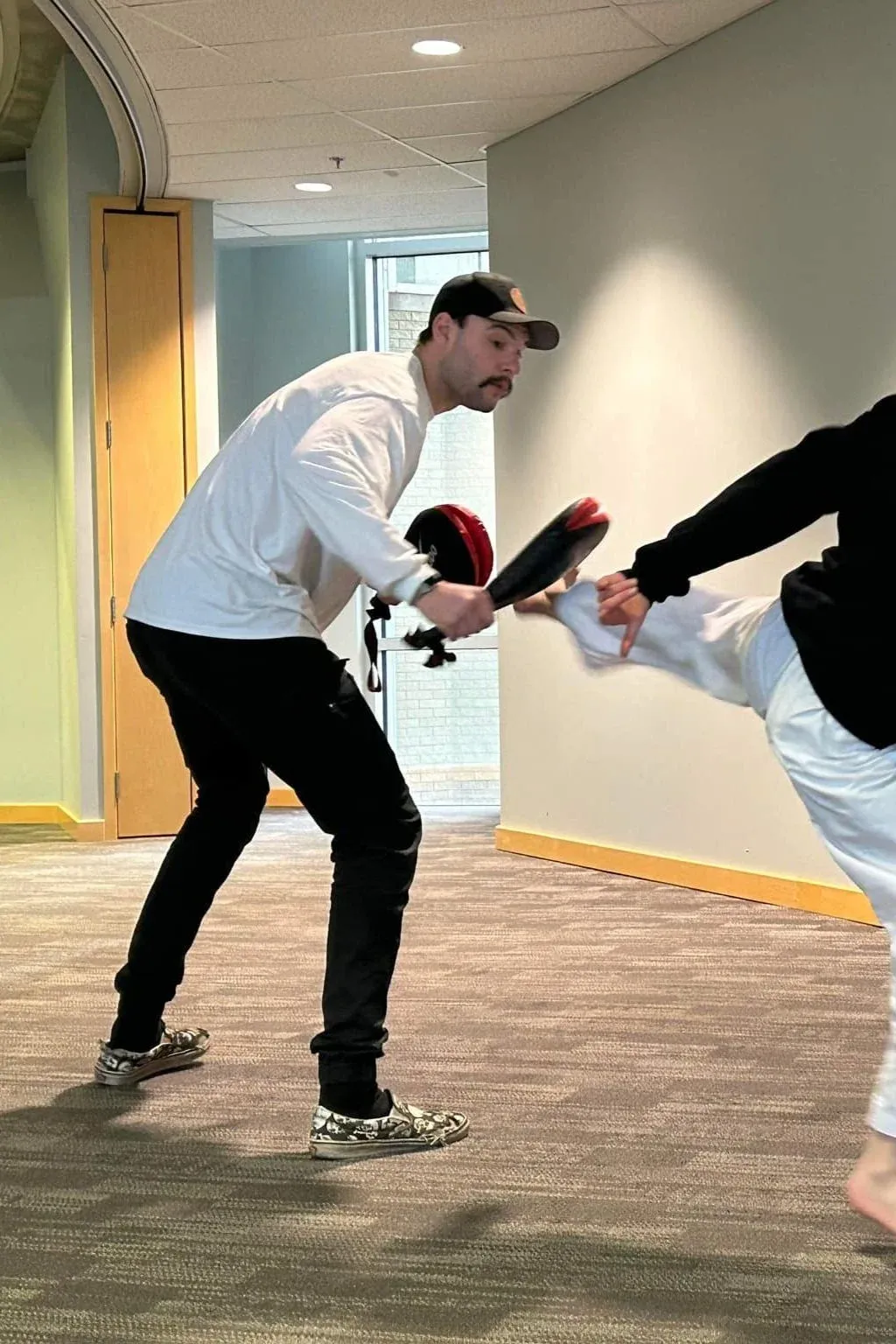
Coach Spencer
“Once the kid who didn’t fit in. Now the coach who refuses to let any student fall through the cracks.”
Coach Spencer brings a dynamic blend of youthful energy and thoughtful precision to his teaching. Deeply committed to the holistic growth of his students, he focuses on building strength not only on the mats, but also in the mind and heart. Using martial arts as a powerful tool, Spencer strives to guide young people into becoming confident, compassionate leaders. While his passion lies in the science of sparring, he inspires each student to explore their own path in Taekwondo—whether that’s sparring, poomsae, technical kicking worthy of the big screen, refereeing, or even coaching. Above all, Spencer is dedicated to showing his students the lasting value of discipline and the incredible rewards it can bring.
“Strength isn’t loud — it’s consistent. Growth is earned, not gifted.”
PROGRAMS
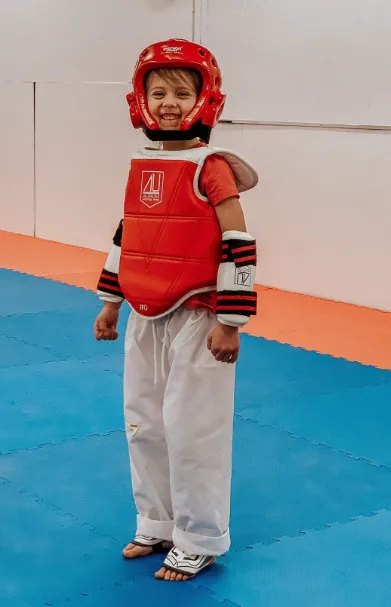
Ages 5-7 Years Old
Fun, focused training that builds respect, confidence, and self-control.
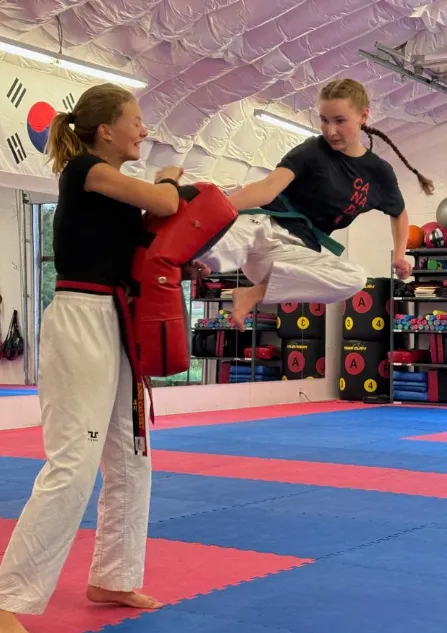
Ages 8 to 13 Years Old
Empowering kids to build discipline through structured training and real challenges.
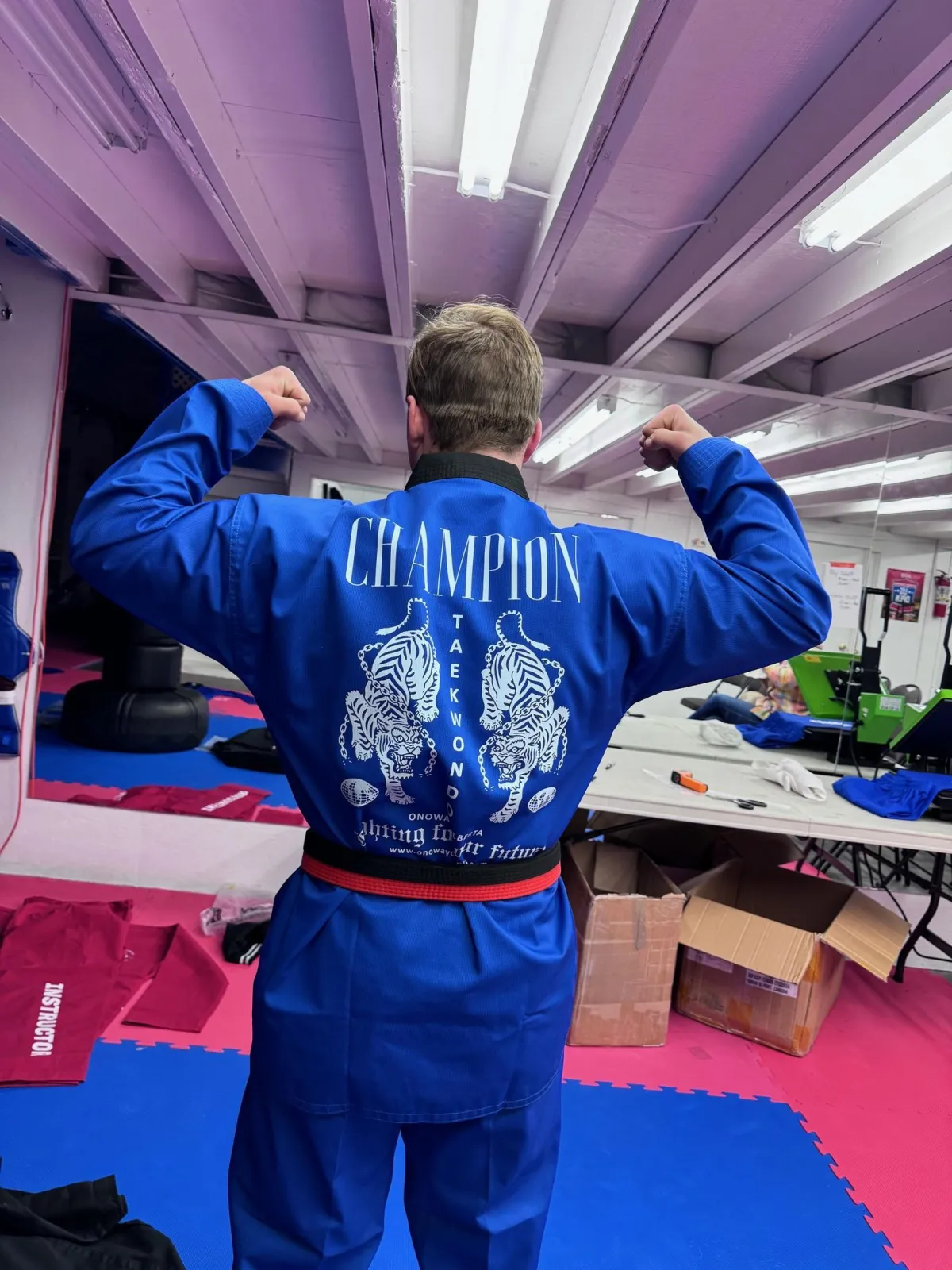
Ages 13+ or Skilled Base Placement
Challenging training that builds resilience, and leadership — preparing teens and adults for success on and off the mats.
PROGRAMS

Ages 5-7 Years Old
Fun, focused training that builds respect, confidence, and self-control.

Ages 8 to 13 Years Old
Empowering kids to build discipline through structured training and real challenges.

Ages 13+ or Skilled Base Placement
Challenging training that builds resilience, and leadership — preparing teens and adults for success on and off the mats.
Every Kid Deserves a Champion
ADHD, anxiety, or “not athletic”?
Those aren’t roadblocks — they’re starting points.
Give us one week; if it’s not a fit,
we’ll help guide you to what is.
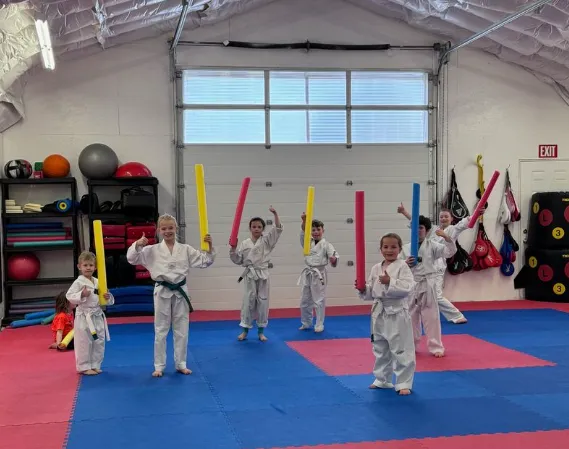
We Build Champions for Life — Not Just Black Belts.
Onoway Champion Taekwondo exists to empower kids who feel out of place, overlooked, or misunderstood — helping them become strong-minded, kind-hearted, and confident leaders through the discipline of martial arts.
We Stand Against
(McDojos, participation trophies, empty praise)
We Stand For (Growth through grit, leadership through service, emotional strength)
We Build Champions for Life — Not Just Black Belts.
Onoway Champion Taekwondo exists to empower kids who feel out of place, overlooked, or misunderstood — helping them become strong-minded, kind-hearted, and confident leaders through the discipline of martial arts.
We Stand Against
(McDojos, participation trophies, empty praise)
We Stand For (Growth through grit, leadership through service, emotional strength)
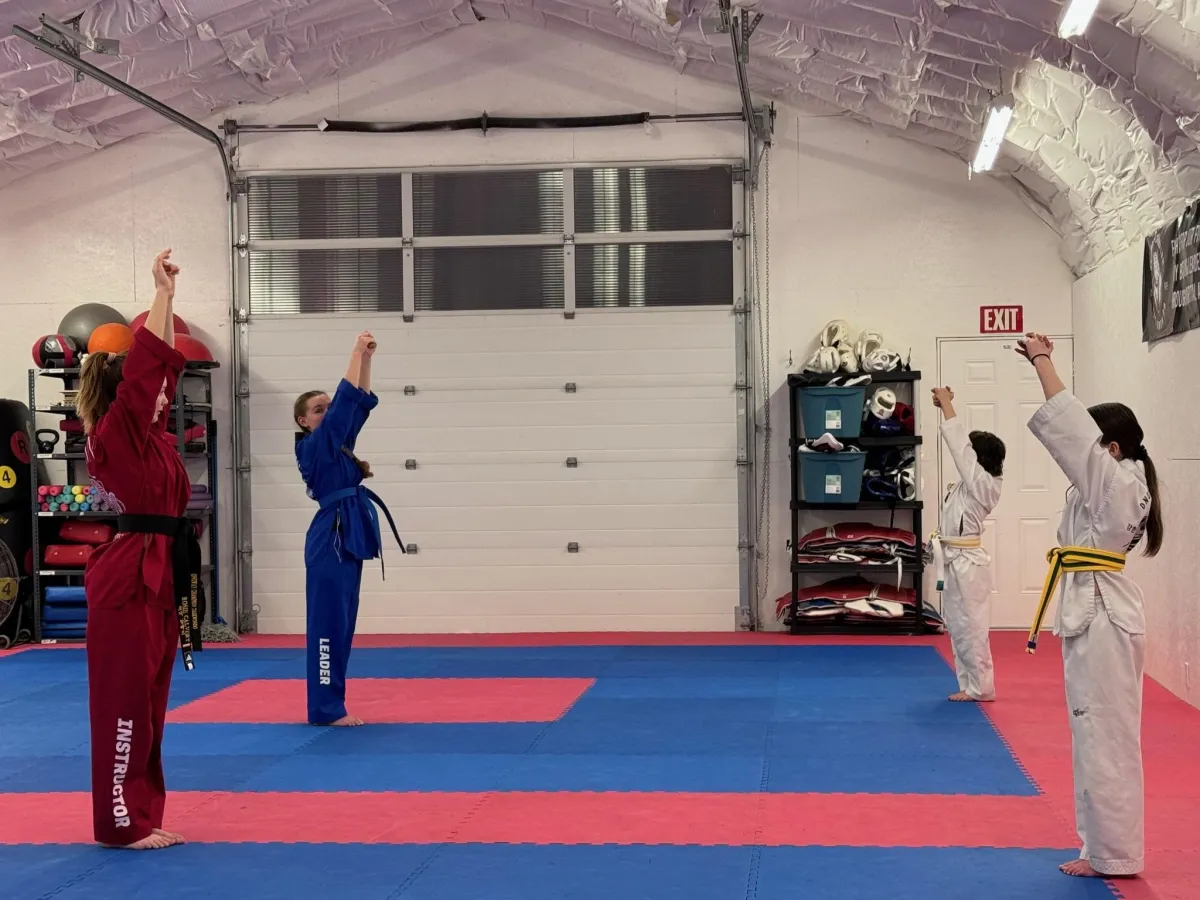
The Champion Pathway
Foundation – Basics, respect, structure
Growth – Confidence, technique, consistency
Challenge – Sparring, setbacks, self-control
Leadership – Teaching, stepping up
Legacy – Giving back, mentoring
Testimonials / Parent Voices
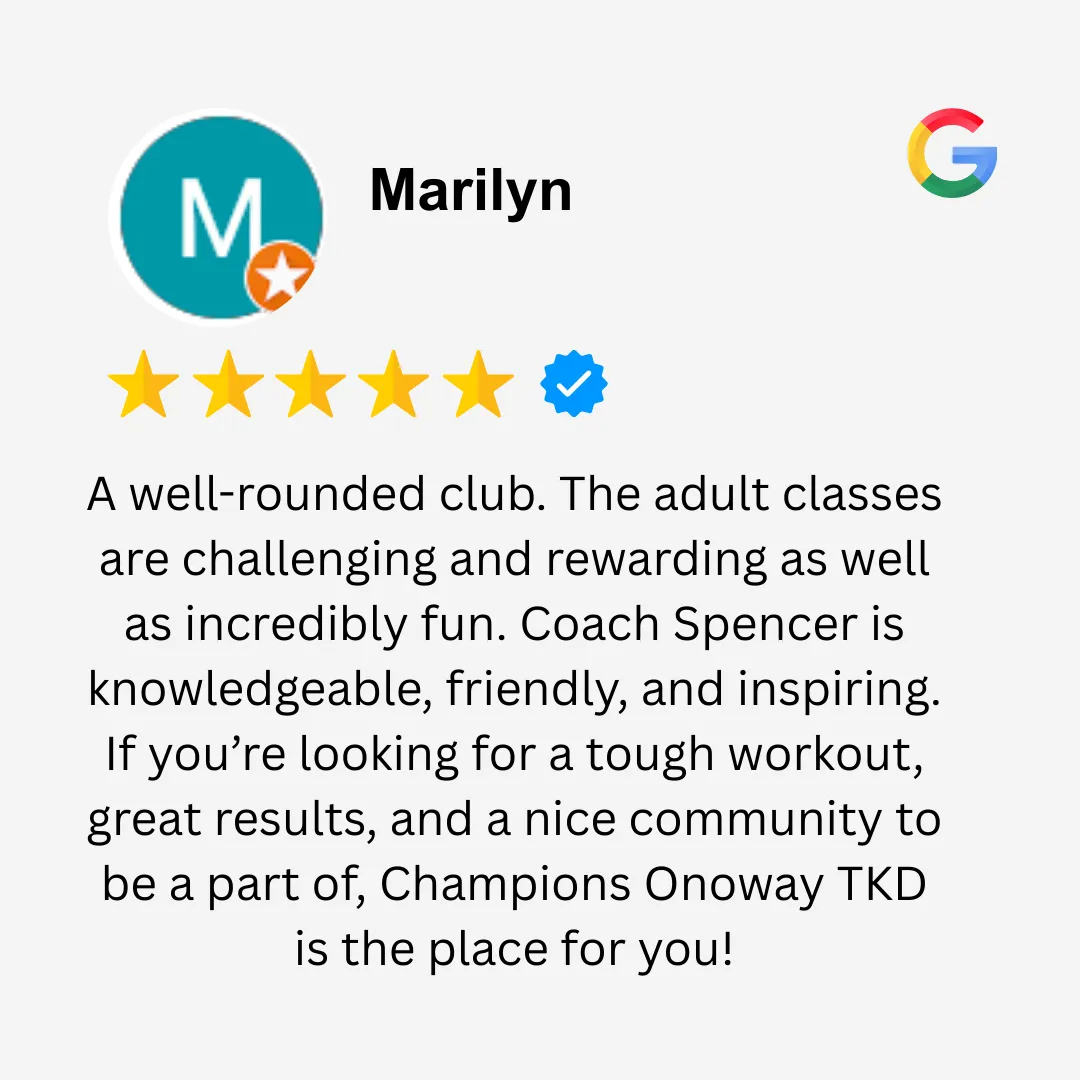
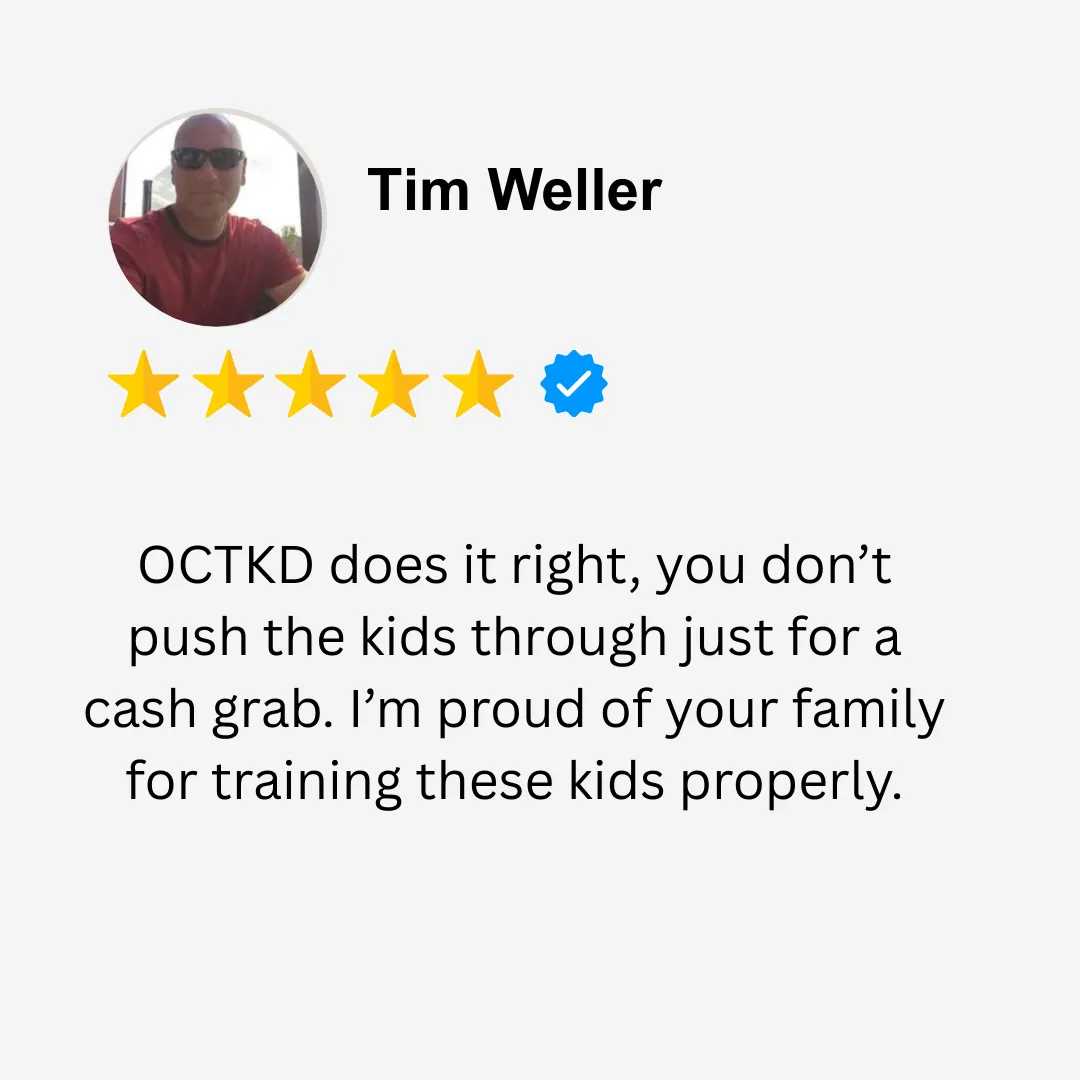
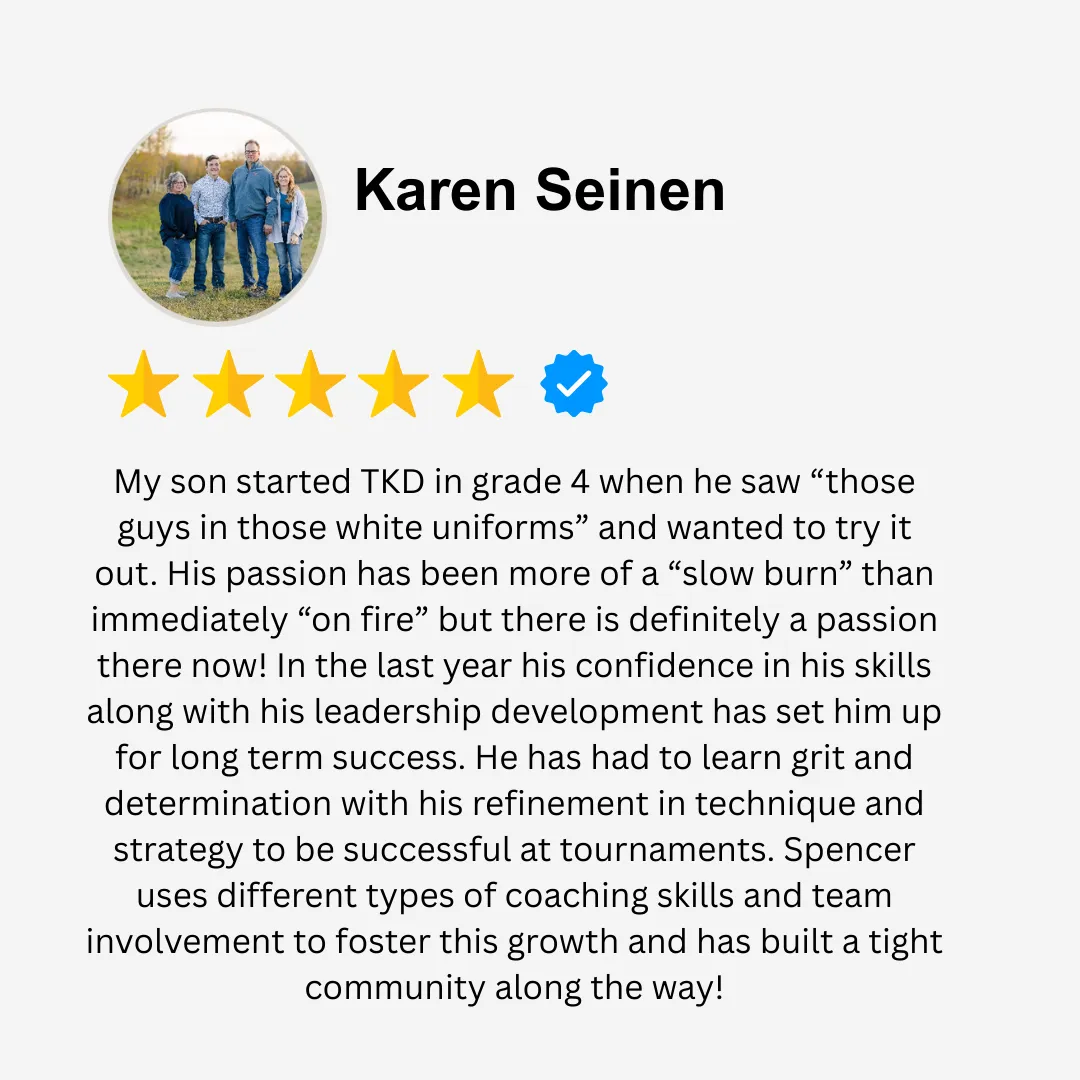
Testimonials / Parent Voices



Be the Champion of Your Own Life
Claim your spot today and unlock a special offer!
Be the Champion of Your Own Life
Claim your spot today and unlock a special offer!
Onoway Champion Taekwondo
Onoway Champion Taekwondo
© Onoway Champion Taekwondo. All Rights Reserved
Powered By: Four Lab Co
Powered By: Four Lab Co
